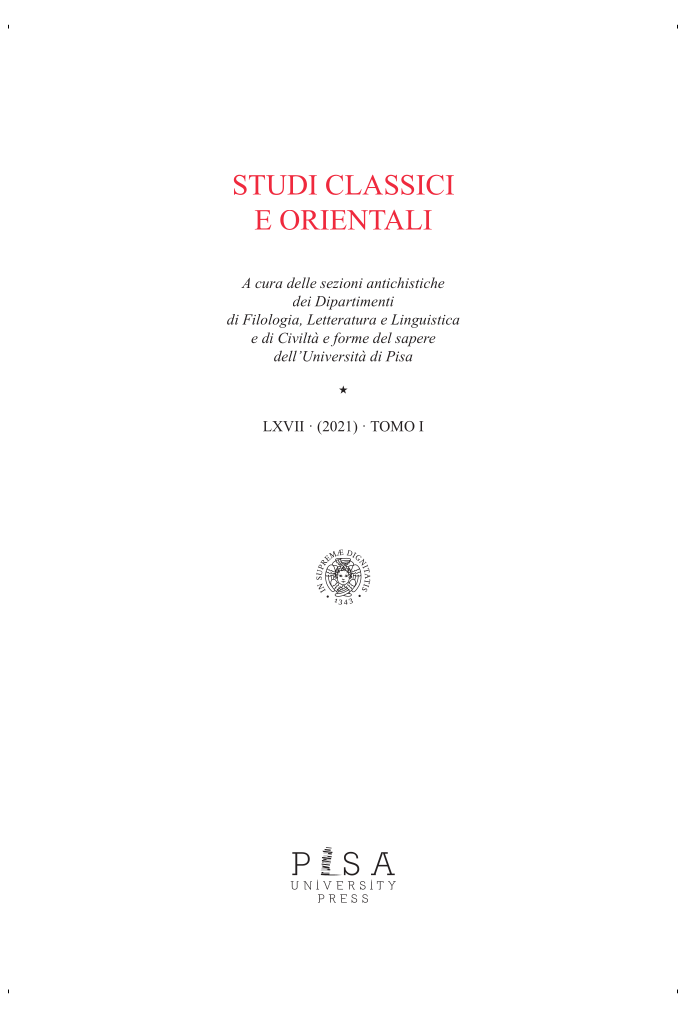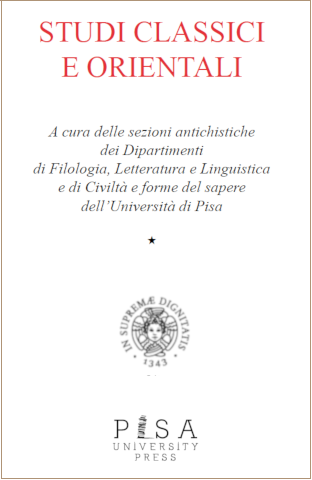Valore e simbologia del termine ‘traccia’ (ἴχνος) nel lessico teologico di Plutarco
Parole chiave:
Plutarch’s theology, Divine footprints, Iliad 13.71-72, Plato’s Phaedrus, Epinomis, EpicurusAbstract
The essay provides an in-depth analysis of the semantic field of the word ἴχνος, i.e. «trace, footprint», within Plutarch’s theology. The interpretive approach adopted here combines literature, philosophy and history of Greek religion. The term ἴχνος actually recalls some famous scenes of gods leaving their footprints on the ground in Homer. In Plutarch it also relates to the Pythagorean-Platonic (mainly metaphoric) terminology connected to the imperative ‘follow the God’ as it is described in Plato’s Phaedrus. The comparison between Plutarch’s theological method of inquiry and techniques such as divination and hunting suggests that his own approach to the problem is not entirely metaphoric. He is concerned with allowing some kind of concrete presence of God in the earthly realm in order to preserve Greek traditional religious beliefs that had been shaped by the epic poetry of the archaic period. Plutarch’s adoption of the semantic field of ἴχνος and the recurrence of the same semantic area in Plato, Epicurus and in the pseudo-Platonic dialogue Epinomis confirm Plutarch’s commitment to the complex academic debate about the forms of knowledge, in which the observation of sensible phenomena played a key-role. Under this respect, the analysis of the word ἴχνος helps to define Plutarch’s theological position within the Platonic tradition.



